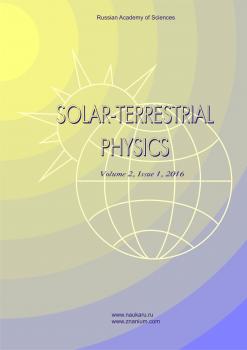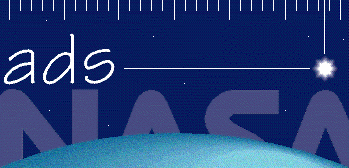Beijing Key Laboratory of Space Environment Exploration
Key Laboratory of Science and Technology on Space Environment Situational Awareness CAS
Beijing, China
Beijing Key Laboratory of Space Environment Exploration
Key Laboratory of Science and Technology on Space Environment Situational Awareness CAS
Beijing, China
Beijing Key Laboratory of Space Environment Exploration
Key Laboratory of Science and Technology on Space Environment Situational Awareness CAS
Beijing, China
Beijing Key Laboratory of Space Environment Exploration
Key Laboratory of Science and Technology on Space Environment Situational Awareness CAS
Beijing, China
Beijing Key Laboratory of Space Environment Exploration
Key Laboratory of Science and Technology on Space Environment Situational Awareness CAS
Beijing, China
Beijing Key Laboratory of Space Environment Exploration
Key Laboratory of Science and Technology on Space Environment Situational Awareness CAS
Beijing, China
Beijing Key Laboratory of Space Environment Exploration
Key Laboratory of Science and Technology on Space Environment Situational Awareness CAS
University of Chinese Academy of Sciences
Beijing, China
Since the moon’s revolution cycle is exactly the same as its rotation cycle, we can only see the moon always facing Earth in the same direction. Based on the clean particle radiation environment of the moon, a neutral atomic telemetry base station could be established on the lunar surface facing Earth to realize long-term continuous geomagnetic activity monitoring. Using the 20°×20° field of view, the 0.5°×0.5° angle resolution, and the ~0.17 cm²sr geometric factor, a two-dimensional ENA imager is being designed. The magnetospheric ring current simulation at a 4–20 keV energy channel for a medium geomagnetic storm (Kp=5) shows the following: 1) at ~60 Rᴇ (Rᴇ is the Earth radius), the imager can collect 10⁴ ENA events for 3 min to meet the statistical requirements for 2D coded imaging data inversion, so as to meet requirements for the analysis of the substorm ring current evolution process of magnetic storms above medium; 2) the ENA radiation loss puzzles in the magnetopause and magnetotail plasma sheet regions have been deduced and revealed using the 2-D ENA emission model. High spatial-temporal resolution ENA imaging monitoring of these two important regions will provide the measurement basis for the solar wind energy input process and generation mechanism; 3) the average sampling interval of ENA particle events is about 16 ms at the moon’s orbit; the spectral time difference for the set energy range is on the order of minutes, which can provide location information to track the trigger of geomagnetic storm particle events.
energetic neutral atom (ENA), telemetry image, particle event, magnetosphere, ring current, magnetopause, plasma sheet
1. Bassani L., Rosa A.D., Bazzano A., Bird A.J., Dean A.J., Gehrels J.B., et al. Is the integral/ibis source IGR J17204-3554 a gamma-ray-emitting galaxy hidden behind the molecular cloud NGC 6334. Astrophys. J. 2005, vol. 634, L21. DOI: 10.1086/ 498718.
2. Barabash S., C:son Brandt P., Norberg O., Lundin R., Roelof E.C., Chase C.J., et al. Energetic neutral atom imaging by the ASTRID microsatellite. Adv. Space Res. 1997, vol. 20, no. 4-5, pp. 1055-1060.
3. Burch J.L. IMAGE mission overview. Space Sci. Rev. 2000, vol. 91, pp. 1-14. DOI:https://doi.org/10.1023/A:1005245323115.
4. Goldstein J., McComas D.J. The Big Picture: Imaging of the Global Geospace Environment by the TWINS Mission. Rev. Geophys. 2018, vol. 56, iss. 1, pp. 251-277. DOI:https://doi.org/10.1002/2017 RG000583.
5. Goldwurm A., Goldoni P., Laurent P., Lebrun F. Imaging simulations of the galactic nucleus with the ibis gamma-ray telescope on board integral. Astrophys. Lett. Communications. 1999, vol. 38, pp. 333-336.
6. IBEX Data Release 12. Remote measurements of magnetospheric Energetic Neutral Emissions by the Interstellar Boundary Explorer, 2019. http://ibex.swri.edu/ibexpublicdata Data_Release_12.
7. Lu L., McKenna-Lawlor S, Balaz J., Shi Jiankui, Yang Chuibai, Luo Jing. Technical configuration and simulation of the NAIS-H for the MIT mission. Chin. J. Space Sci. 2014, vol. 34, iss. 3, pp. 341-351. DOI:https://doi.org/10.11728/cjss2014.03.341.
8. Lu L., McKenna-Lawlor S, Cao J B, Kudela K, Balaz J. The causal sequence investigation of the ring current ion-flux increasing and the magnetotail ion injection during a major storm. Science China Earth Sciences. 2016, vol. 59, pp. 129-144. DOI:https://doi.org/10.1007/s11430-015-5121-7.
9. Lu L., McKenna-Lawlor S., Balaz J. Close up observation and inversion of low-altitude ENA emissions during a substorm event. Science China Earth Sciences. 2019, vol. 62, pp. 1024-1032. DOI:https://doi.org/10.1007/s11430-018-9307-x.
10. Lu L., Yu Q.-L., Lu Q. Near-approach imaging simulation of low-altitude ENA emissions by a LEO satellite. Front. Astron. Space Sci. 2020, vol. 7, id. 35. DOI:https://doi.org/10.3389/fspas.2020.00035.
11. McComas D.J., Allegrini F., Baldonado J., Blake B., Brandt P.C., Burch J., et al. The two wide-angle imaging neutral-atom spectrometers (TWINS) NASA mission-of-opportunity. Space Sci. Rev. 2009, vol. 142, pp. 157-231). DOI:https://doi.org/10.1007/s11214-008-9467-4.
12. McComas D.J., Carrico J.P., Hautamaki B., Intelisano M., Lebois R., Loucks M., et al. A new class of long-term stable lunar resonance orbits:Space weather applications and the Interstellar Boundary Explorer. Space Weather. 2011, vol. 9, iss. 11, S11002. DOI:https://doi.org/10.1029/2011SW000704.
13. McComas D.J., Dayeh M.A., Allegrini F., Bzowski M., de Majistre R., Fujiki K., et al. The frist three years of IBEX observations and our evolving heliosphere. Astrophys. J. Supplement Series. 2012, vol. 203, no. 1.
14. McKenna Lawlor S., Balaz J., Barabash S., Johnsson K., Lu L., Shen C., et al. The energetic NeUtral Atom Detector Unit (NUADU) for China’s Double Star Mission and its Calibration. Nuclear Inst. & Methods. 2004, vol. 503, iss. 3, pp. 311-322. DOI:https://doi.org/10.1016/j.nima.2004.04.244.
15. Rairden R L, Frank L.A., Craven J.D. Geocoronal imaging with dynamics explorer. Geophys. Res. Lett. 1983, vol. 91, no. A12, pp. 13613-13630. DOI:https://doi.org/10.1029/GL010i007p00533.
16. Roelof E.C. Energetic neutral atom image of a storm-time ring current. Geophys. Res. Lett. 1987, vol. 14, iss. 6, pp. 652-655. DOI:https://doi.org/10.1029/GL014i006p00652.

















